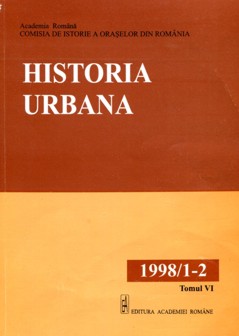Privilegiile economice şi dezvoltarea meşteşugurilor în Transilvania până la mijlocul secolului al XVI lea
Economic privileges and the development of crafts in Transylvania up to the middle of the sixteenth century
Author(s): Enikő Rusz-FogarasiSubject(s): History
Published by: Editura Academiei Române
Keywords: economic privileges; markets; fairs; customs; coinage centers; crafts; Transylvania
Summary/Abstract: Economic privileges have always given a significant impetus to economic life. Analyzing the privileges and the rights granted in the economic field one may come to the conclusion that they concerned various spheres of activity: markets and fairs, customs and exemption of customs duties, coinage. The former concerned the right to organize and hold annual and weekly fairs, free or dependent markets. Customs duty exemptions varied from tax exemption on a specific commodity at a certain custom house to exemption granted for an entire category of products throughout the country. The former were actually implemented, whereas the latter, although reiterated and strengthened, were often disregarded. This was also due to the persistence of the practice of granting customs privileges to natural persons. The setting up of customs houses in urban localities stimulated the process of urbanization. In the seven countries under discussion, very few localities were raised to the status of coinage centers, where they would mint coins and change money. One may conclude that economic privileges mainly concerned commerce and only exceptionally crafts. But the commercial impetus stimulated crafts as well. The gap was filled in by the guilds and the documents concerning their activity. At first, the economic privileges relating to urban life concerned the commercial activity, the main occupation of the burghers. Later on, when a body of craftsmen developed, they better defended their interests by associating on a professional basis.
Journal: Historia Urbana
- Issue Year: VI/1998
- Issue No: 1+2
- Page Range: 49-65
- Page Count: 17
- Language: Romanian
- Content File-PDF

